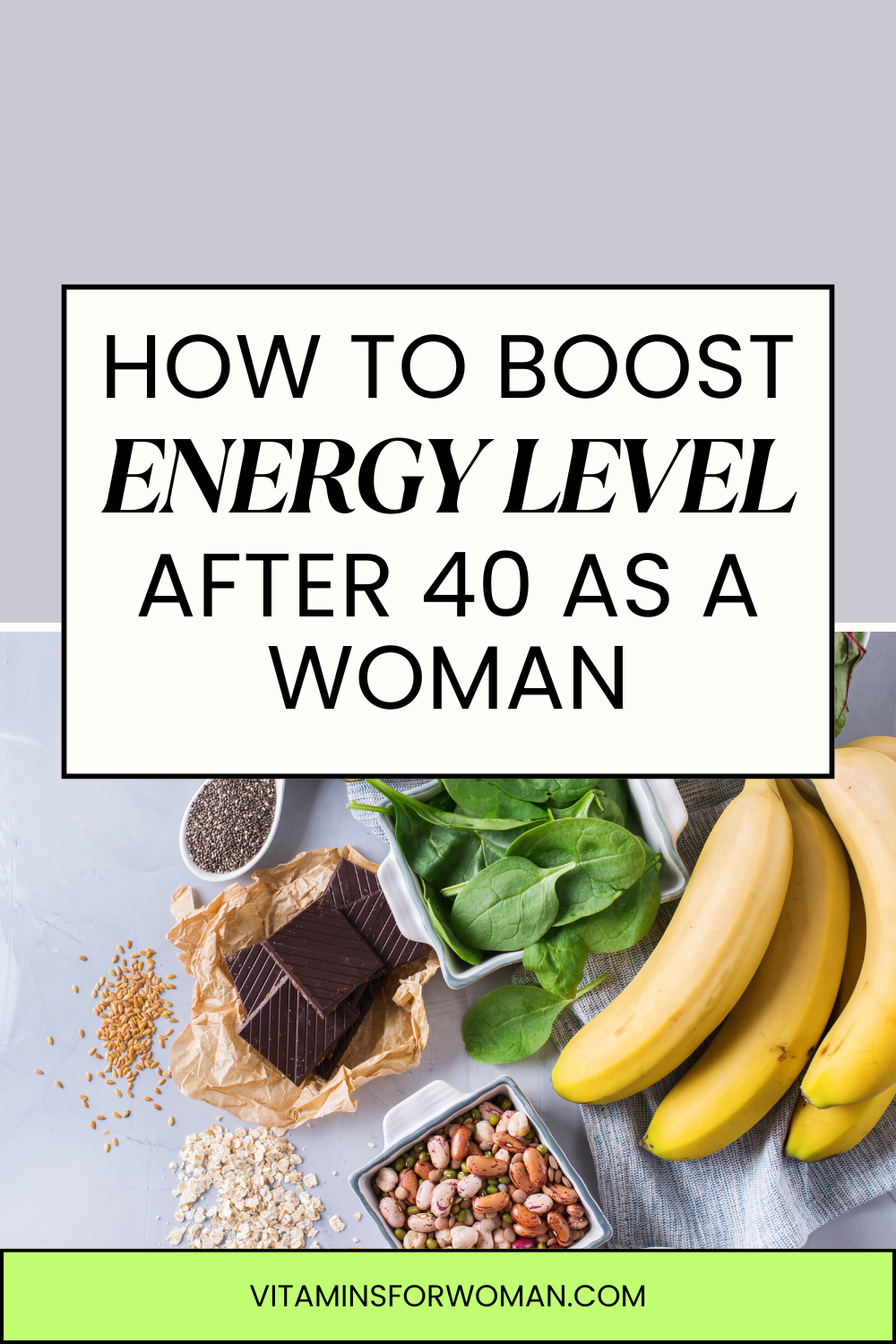B vitamins and energy support in midlife are closely linked. From brain function and mood to metabolism and vitality, these essential nutrients help women over 40 navigate hormonal changes with more resilience.
Introduction
B vitamins and energy support in midlife deserve more attention. Women often feel more fatigued, scattered, or mentally foggy in their 40s and beyond. While hormones play a role, so does nutrition—especially the B vitamin family.
These water-soluble vitamins are vital for turning food into energy, supporting red blood cell formation, and maintaining brain and nerve health. Yet deficiencies are surprisingly common, particularly in women with restricted diets, high stress, or poor absorption. In this article, we’ll break down the roles of key B vitamins, signs of deficiency, and how to maintain steady energy through midlife.
Why B Vitamins Are Essential for Women Over 40
B vitamins act as coenzymes in energy metabolism, meaning they help the body convert food into usable fuel. Without them, fatigue and brain fog set in quickly. Beyond energy, they also play roles in hormone regulation, cardiovascular health, and stress resilience—areas where women over 40 often need extra support.
Hormonal changes during perimenopause and menopause can affect nutrient needs, while lifestyle factors such as alcohol use, stress, or certain medications (like metformin and proton pump inhibitors) may lower absorption. This makes midlife an important time to focus on B vitamin intake.
Key B Vitamins for Energy and Mood
- Vitamin B1 (Thiamine): Supports energy metabolism and nerve function. Deficiency may cause fatigue, irritability, or poor concentration.
- Vitamin B2 (Riboflavin): Helps release energy from food and supports skin and eye health.
- Vitamin B3 (Niacin): Plays a role in cellular energy production and supports cholesterol balance.
- Vitamin B6 (Pyridoxine): Important for neurotransmitter production, mood regulation, and hormone balance.
- Vitamin B9 (Folate): Essential for DNA repair and red blood cell formation; deficiency can cause anemia and fatigue.
- Vitamin B12 (Cobalamin): Critical for nerve health and red blood cell production; deficiency is common in midlife and may cause memory issues, low energy, and mood changes.
Together, these vitamins help sustain steady energy and protect brain and mood health, which can decline with age.
Signs of B Vitamin Deficiency in Midlife Women
Deficiency symptoms often overlap with menopause, making them easy to miss. Common signs include:
- Persistent fatigue or weakness
- Memory lapses or difficulty concentrating
- Tingling or numbness in hands and feet
- Mood swings, depression, or anxiety
- Pale skin or anemia
Regular testing, especially for B12 and folate, can help identify deficiencies before they worsen. Since absorption of B12 decreases with age, many women may benefit from supplementation even with a balanced diet.
Best Food Sources of B Vitamins
Food remains the best way to obtain B vitamins. Focus on:
- Animal sources: eggs, poultry, fish, dairy, lean red meat
- Plant sources: leafy greens, legumes, seeds, whole grains, nutritional yeast
Pairing these with vitamin C-rich foods can enhance absorption of certain B vitamins, particularly folate. Women on vegetarian or vegan diets should pay special attention to B12, since it is primarily found in animal products.
Do You Need a B Complex Supplement
For some women, food alone isn’t enough. Stress, aging, and medications can deplete B vitamins faster than diet can replenish them. A high-quality B complex supplement can help fill the gaps, especially for women experiencing fatigue, poor concentration, or mood changes.
When choosing a supplement, look for active or methylated forms (like methylfolate and methylcobalamin), which the body absorbs more efficiently. Avoid mega-doses unless directed by a healthcare provider, as balance between the B vitamins is important.
Frequently Asked Questions
1. Can B vitamins really improve energy in midlife?
Yes. B vitamins help convert food into fuel and support red blood cell production. Deficiency often results in low energy, so restoring healthy levels can improve vitality.
2. Is B12 deficiency common in women over 40?
Yes. Absorption decreases with age, and deficiency is particularly common in women on vegetarian or vegan diets. Supplementation is often needed for optimal levels.
3. Should I take a B complex or individual B vitamins?
A balanced B complex is often best, since the vitamins work together. However, specific deficiencies (like B12 or folate) may require additional targeted supplementation.
A Word From Vitamins For Woman
B vitamins and energy support in midlife go hand in hand. Paying attention to these essential nutrients can help reduce fatigue, sharpen focus, and ease mood changes during hormonal transitions. Whether from food, supplements, or both, investing in B vitamins is an empowering step toward thriving in midlife and beyond.
References
- Tucker KL, Rich S, Rosenberg I, et al. Plasma vitamin B12 concentrations relate to intake source in the Framingham Offspring Study. Am J Clin Nutr. 2000;71(2):514-522.
- Reynolds E. Vitamin B12, folic acid, and the nervous system. Lancet Neurol. 2006;5(11):949-960.
- Kennedy DO. B vitamins and the brain: Mechanisms, dose and efficacy—A review. Nutrients. 2016;8(2):68.
- O’Leary F, Samman S. Vitamin B12 in health and disease. Nutrients. 2010;2(3):299-316.
- Smith AD, Refsum H. Vitamin B12 and cognition in the elderly. Am J Clin Nutr. 2009;89(2):707S-711S.






